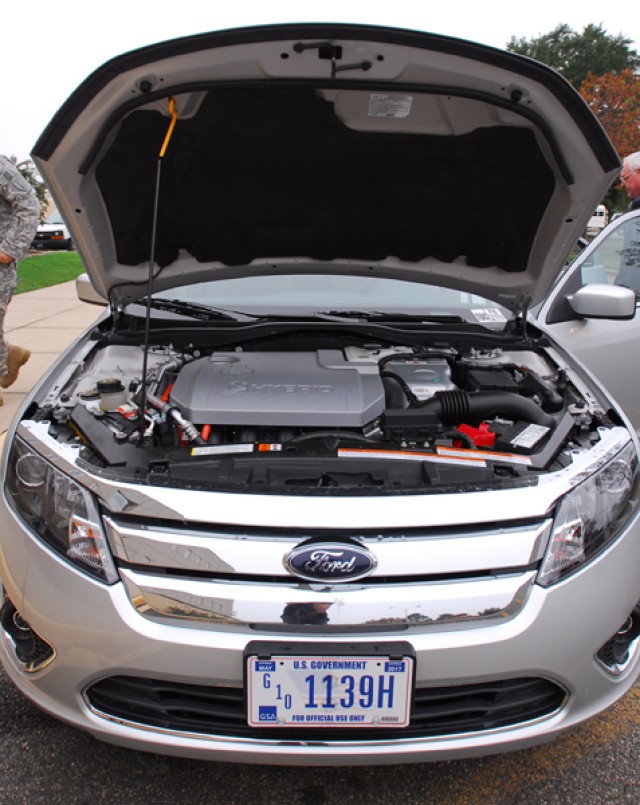FORT BENNING, GA - The Army is encouraging installations to trade in the keys of gas-guzzling cars for hybrid electric sedans that can net an average of 675 to 775 miles on a tank of gas.
In furthering the Army's efforts to go green, the Army has partnered with the General Services Administration to bring more than 500 hybrid electric vehicles to 33 installations and commands, including Fort Benning.
Fort Benning has eight hybrid sedans in its non-tactical vehicle fleet and may gain another 12-15 in the next year as older, high-mileage GSA vehicles are replaced, said Ron Johnson, chief of the post's transportation division.
The Ford Fusion hybrids, leased from GSA, contain both an electric motor and a gas-powered engine that work in tandem to provide the vehicle with the most efficient use of gasoline available in cars today, he said.
The hybrids average 36 miles per gallon in the city and 41-47 mpg on the highway and cruise along at speeds comparable to a gasoline engine. The hybrids come with the added bonus of a self-charging battery, which means they don't need to be plugged into an electrical source overnight to recharge.
"This is the wave of the future," said Johnson, who is responsible for oversight and management of the GSA non tactical fleet at Fort Benning. "The hybrid electric vehicle is a transition between the gas-guzzling engine and a pure, electric motor-driven vehicle. As technology grows, we will see hybrid vehicles getting better mileage."
Hybrid vehicles reduce fuel consumption and "greenhouse" gas emissions and have the potential to impact not just the Army budget but reliance on fossil fuels.
Executive Order 13423 and The Energy Independence and Security Act of 2007 require the Army to reduce its total fleet consumption of petroleum products by 2 percent each year until 2015. The Army is required to reduce petroleum use by 20 percent while increasing alternative fuel use by 10 percent in the next six years, according to an Installation Management Command memo.
A directive from the Installation Management Command states, "The Army recognizes that every dollar spent on fuel is one less dollar spent on equipping Soldiers and caring for their families ... The Army of the future is an expeditionary Army. We cannot be tied to giant fuel convoys crossing deserts and mountains that the enemy strives to attack and control."
Johnson said the door is now open to begin converting all sorts of gas-powered machines to hybrids.
"I think it's a matter of the whole nation pulling together to try to rid ourselves of, or at least reduce, our reliance on petroleum fuels," Johnson said. "The future may include hybrid generators, lawnmowers, pressure washers and tractors. Who knows' Maybe at some point we will all be driving vehicles powered by electricity alone."




Social Sharing